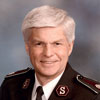 As you read this sentence, there are millions of people around the world praying. The prayers are voiced in countless languages and in a myriad of cultures. While prayer is practised globally, it is also shrouded in mystery. Atheists and other skeptics conclude that there is no point in praying because no one is listening and, consequently, no one will answer. Yet those who do pray come to a shared conclusion: it works! The power of prayer is an essential tenant of our Christian faith. Beyond this basic assumption, we ask, “How does prayer work?” and “Why does it work?”
As you read this sentence, there are millions of people around the world praying. The prayers are voiced in countless languages and in a myriad of cultures. While prayer is practised globally, it is also shrouded in mystery. Atheists and other skeptics conclude that there is no point in praying because no one is listening and, consequently, no one will answer. Yet those who do pray come to a shared conclusion: it works! The power of prayer is an essential tenant of our Christian faith. Beyond this basic assumption, we ask, “How does prayer work?” and “Why does it work?”
How prayer works is a common theme in Scripture. Prayer finds its source in the heart of God, who longs to communicate with his creation. God instructs us to “pray continually” (see 1 Thessalonians 5:17). In place of continuous contact with our Maker, we often opt to say a brief grace before a meal, or a fleeting, somewhat obligatory prayer for those who are sick or grieving.
Prayer can easily be perceived as a time of forced, boring and unproductive solitude. In our action-oriented culture, we hardly have enough time in the day for what must be accomplished. The duty to pray is effortlessly put aside with what we believe is a good rationale for action. Surely God understands our pressured, frenzied and often confused life, doesn't he? His response? “If my people, who are called by my name, will humble themselves and pray and seek my face and turn from their wicked ways, then will I hear from Heaven, and I will forgive their sin and will heal their land” (2 Chronicles 7:14).
Why pray? I suggest four reasons:
Prayer honours God. Through prayer we worship God, giving him the praise and glory he deserves, and recognizing him as the King of Kings and Lord of Lords. In honouring God, we humble ourselves as we bask in his holy presence.
Prayer reveals God. In prayer, we reflect on God's Word, which becomes “a lamp to [our] feet and a light for [our] path” (see Psalm 119:105). Prayer is the central and essential vehicle through which God speaks to us. Phillip Henry, father of the renowned commentary author, Matthew Henry, observed: “God regards not elegance in prayer. He cares not how little there is of the head…. There is a great deal of the heart.” It is the heart that matters most in prayer. God longs to communicate with us “heart to heart.”
Prayer fosters trust in God. In a day of distrust, when people closest to us let us down, we can count on God. The distinguished theologian, Soren Kierkegaard, prayed: “Father in Heaven, when the thought of you wakes in our hearts, let it not wake like a frightened bird that flies about in dismay, but like a child waking from its sleep with a heavenly smile.” Prayer convinces us to calmly put our trust in God alone.
Prayer promotes intimacy with God. As King David declared, “My soul thirsts for you” (see Psalm 63:1 NASB). Prayer leads to a closeness, oneness and intimate communion with God. Jesus is our example. He spoke intimately with the Father. Jesus assures us that “your Father knows what you need before you ask him” (see Matthew 6:8).
God wants us to constantly be in “prayer mode.” Prayer is our lifeline, helping us moment by moment to discover and experience the wonder, power and beauty of God's love. Through prayer, we honour and encounter God, who summons us to love and commune with him. Nothing in this world can compare to it.
 Commissioner William W. Francis is the Territorial Commander of The Salvation Army Canada and Bermuda Territory. His wife, Commissioner Marilyn Francis, is the Territorial President for Women's Ministries. Commissioners Francis have two adult children, Captain William Marshall and Susan Marjorie, plus six grandchildren.
Commissioner William W. Francis is the Territorial Commander of The Salvation Army Canada and Bermuda Territory. His wife, Commissioner Marilyn Francis, is the Territorial President for Women's Ministries. Commissioners Francis have two adult children, Captain William Marshall and Susan Marjorie, plus six grandchildren.









Very well said. I totally agree with their comments on prayer.